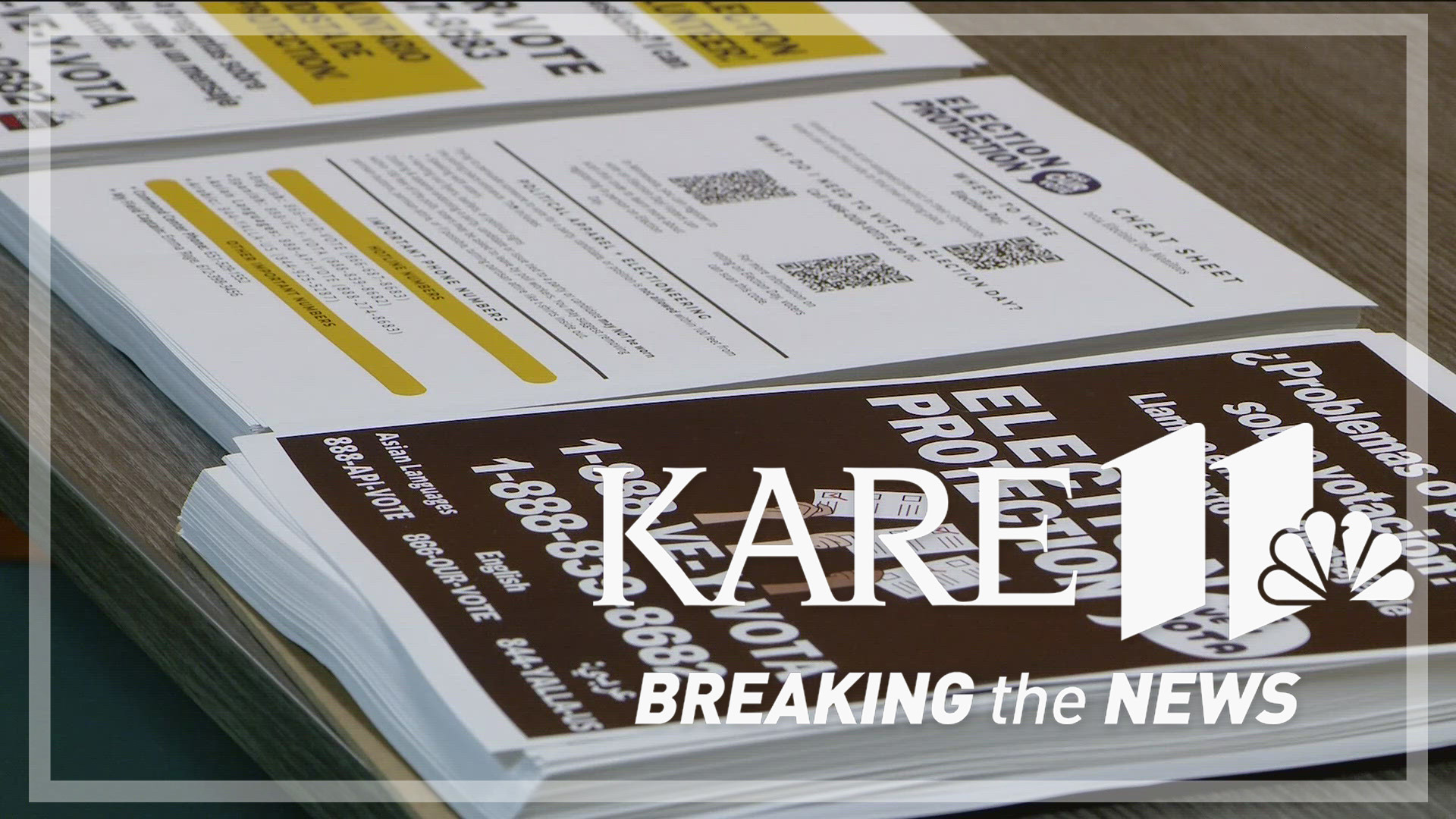MINNESOTA, USA — While the secretary of state publishes polling information in the Spanish Language, experts say there are still challenges when it comes to activating Latino voters. Minnesota groups have been hard at work getting voting information out and challenging misinformation.
Communities Organizing Latine Power and Action (COPAL) says it is still working to inspire Latino voters to the polls days before the election.
Eva Peña is one of the volunteers who spent part of Wednesday at their headquarters on Lake Street, calling Latino voters and making sure questions are answered in either English or Spanish.
"I've been able to help people figure out if they're registered or not to vote," smiled Peña. "And that part has felt super fulfilling for me."
About 6% of Minnesota's population is Latino and COPAL's organizing director Ryan Perez says language isn't the only barrier. Fear is a hurdle, too.
"There's some common myths that folks are still facing," said Perez. "They think, is it unsafe for me to vote? If I vote, will that put my relative in jeopardy?"
Perez says a myth has spread on social media that if you exercise your right to vote as a citizen, it could put undocumented loved ones at risk of deportation.
The secretary of state's office reaffirmed Wednesday that all eligible Minnesotans should vote without fear of repercussions.
"As much as we think social media seems deregulated and there's a lot of false information for English speakers, it's even more so for non-English speakers," said Perez.
Annastacia Belladonna-Carrera is the Executive director of Common Cause Minnesota. Her organization runs an election protection program and has volunteers flagging misinformation on social media as part of its efforts.
"If I'm your cousin, or I'm the small business owner where you frequent with your family, and you see me reposting something, you're gonna be more likely than not to believe that because it's coming from me, right?" she pointed out.
Belladonna-Carrera says there's an additional challenge in reaching voters with accurate information in rural areas as well.
"It's that isolation," Belladonna-Carrera said. "It's not just geographic isolation, it's linguistic isolation."
But volunteers say it's not just about showing up, but showing leaders that they need the Latino vote.
"They'll be thinking about, well, how can I make the how can I make life better for our Latino community?" said Peña.
For more resources in Spanish on how to vote, go to the Secretary of State's website.

